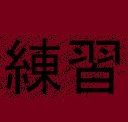
お客様の中に、探偵の方はいらっしゃいませんか?
お客様(おきゃく さま)
So we start off with some keigo here. This is a very polite way to address someone. 客 just means “customer” or “guest”. 様 is a suffix given to a name or in this case a customer. Think of it as a very polite version of さん.
の中に(の なか に)
When you see this pattern の中に it usually means “among” something. When you place a noun before it, it will mean among that noun.
For example:
アニメの ジャンルの中に、謎のジャンルが一番いいと思います。
Among the anime genres, I think that the mystery genre is the best.
探偵(たんてい)
The first kanji 探 can mean “search” or “look for”. The second kanji 偵 just means “spy”. Spies looking for something. A person secretly looking for something. This has gotta be “detective”.
の
A possessive particle. Beside a noun it can mean to add an apostrophe s to the noun preceding it. In other words it would make the word detective turn into detective’s.
However if we look at the next word…
方(かた)
This is the polite version of 人(ひと)or “person”. Put together with ”探偵の” it roughly means a “person who is a detective”. We can make this even more complex by adding our previous translations up till now to the mix. By doing so we have “Among the guests, a person who is a detective”.
は
Almost done. This one is easy. は is a subject particle. Just think of it as the English version of “is”.
いらっしゃいませんか
Final stretch. This is another keigo word. This verb comes from the verb いらっしゃいます. It is the keigo version of the verbs 行く “to go”, 来る “to come” and いる “to be”. In this case, it is best to go with the latter, いる to translate this.
いる can be translated to “to be”, “to exist”, “there is”. Of course this verb can only be used for living things. (Note: Flowers may be alive but the Japanese catagorize underneath ある the verb with the same meaning as いる. So perhaps animated objects, or objects that can move on their own is a better explanation.)
However it is being put into negative form with a question particle か at the end.
Now what could this mean? When you see a pattern like this, the speaker is asking one of two things:
1. Is someone here? いませんか?
2. Inviting someone to do something. ???
Fortunately, we can deduce which is used in this context from the rest of our translation. Number 1 is the best choice. As for number 2, I’m not sure how that would work. With this word, number 1’s translation is most commonly seen and used for いませんか and いらっしゃいませんか(in relation to the verb いる).
So all together we have “Among the guests, is there a person who is a detective?”.
So, with that done let’s see how Funimation translated it.

I had it somewhat right. However, this is a matter of knowing the context of the episode before translating. At first, this episode takes place on a plane.
So, of course with that info, you would put passengers instead of guests or customers. And instead of asking if “there is a detective here” or something of that sort, you would be asking if “there is a detective on board (the plane)” as Funimation has done so here.
This anime title comes from 「探偵はもう死んでいる」or The Detective is Already Dead. Not to be confused with a certain fighter’s phrase that became a meme.
The story follows a trouble magnet of sorts by the name of 君塚 君彦 Kimizuka Kimihikio who has been forced to take a plane and become a delivery boy for a mysterious case. While in flight, an employee asks if there is a detective on board. Fortunately, for them there is. Unfortunately for Kimizuka, a detective is sitting right next to him and gets him wrapped up in the case. And this begins the story of Kimihiko and the mysterious detective シエスタ Siesta.
Had an over 40 minute first episode and I loved every moment of it. The title kind of already spoils what the show is about but, I was intrigued with how the detective died at the time. Alas, the series as a whole didn’t live up to the expectations that the first episode offered. Supposedly the light novels are good but I think that I will refrain from picking them up for now.
If you are interested in the anime here’s a PV:




























You must be logged in to post a comment.